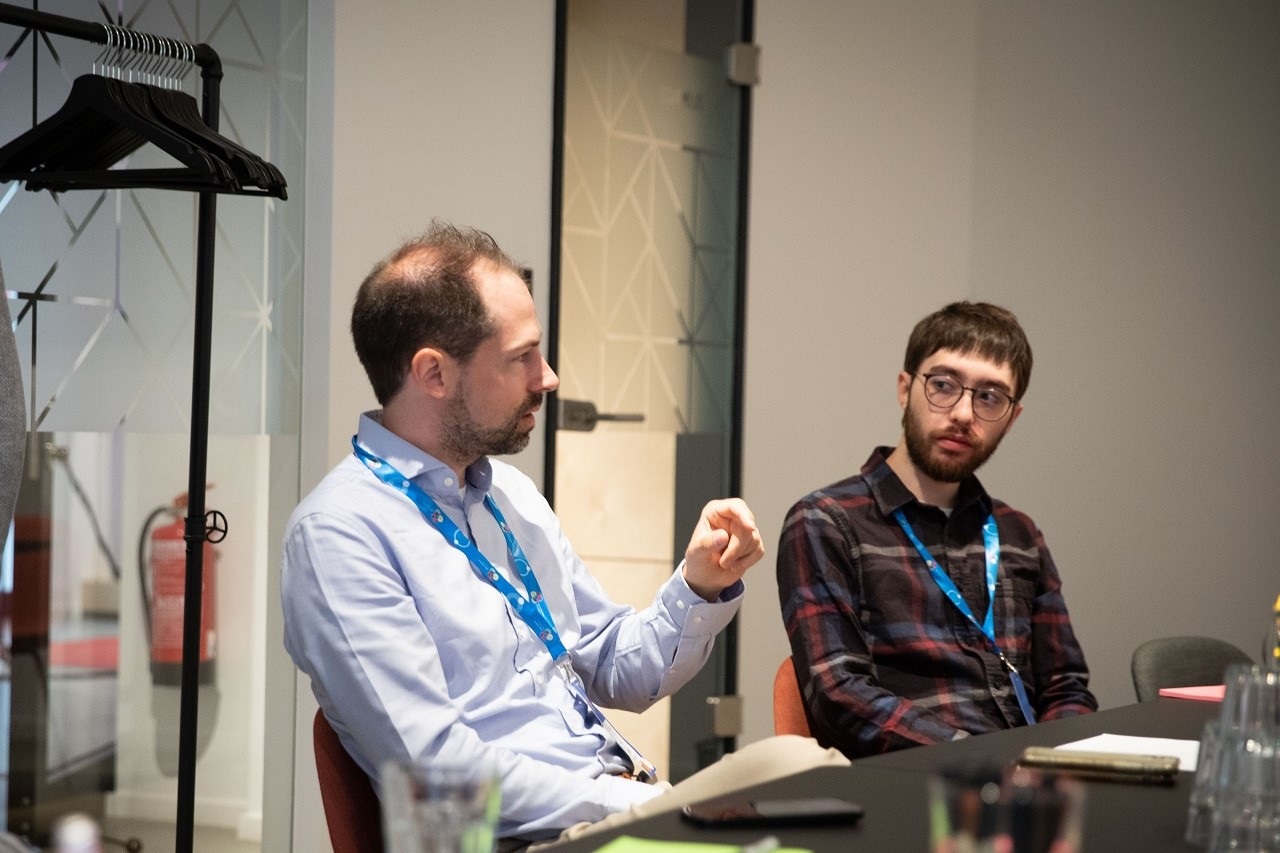In the Open Logistics Foundation, developers can contribute to projects in our Open Logistics Repository, aiding in the development of de-facto standards for logistics and supply chains. We strive to make it easier for developers by providing comprehensive and up-to-date information in the repository, including relevant documents, project status, and progress updates. Contributors can also easily reach out to project members within our community. Furthermore, each project is managed by maintainers who ensure that the code is well-structured and straightforward.
Our community is built on open and fair collaboration among its members, and we are happy to receive new collaborators. Here are seven simple steps from Jens Leveling, Head of Technology, to help you get started:
1. Choose a project
Start by selecting a project that aligns with your interests, expertise or background. Find project options by browsing our Repository (We assign projects to our Working Groups.) – or directly have a look at the project overview. When selecting a project, set realistic expectations. Avoid overcommitting or choosing a project beyond your skill set, as this can limit your long-term contribution.
2. Review the project’s README file
Once you find a project that interests you, begin by reading the README file. It often contains vital information about the project’s goals and core technologies. Furthermore, look at the documentation, which shows the project’s structure. It is essential for developers to understand the project, including its technical aspects, before making a code contribution. If something is unclear, you should contact the project’s collaborators for more clarification.
3. Check the project’s Issue Board
Every project has an Issue Board where open tasks are collected and listed. Have a look at it; maybe there are smaller tasks or issues you can start with. For example, see our eCMR issue board. The Foundation’s project Issue Boards are updated regularly as the members continue to work on the tasks. Be sure to check for the most current updates.
4. Start small with improving documentation or writing new tests
• Sign our CLA: Before anyone is allowed to submit their changes, they must sign our Contributor License Agreement (CLA) to give us the right to publish their work. You can find our CLA here.
• Review Contribution Guidelines: Have a look at the project’s Contribution.md before making your first contribution.
• Fix Bugs or Improve Documentation: Small bug fixes or documentation improvements are excellent starting points. Many projects need help with typo fixes, clarity improvements, or adding code comments.
• Write Tests: Many open source projects need better test coverage, which can be an approachable way to contribute without deep knowledge of the codebase.
5. Get in touch with the team
Software development thrives on communication with other developers; engaging with other developers and, most importantly, with project maintainers will be helpful. Find their details (names and email) in the project’s Readme.md.
Furthermore, Development Teams often hold regular meetings and discussions in chatrooms. An exchange on specific topics often takes place via comments in issues or merge requests. It is important to remember that open source projects benefit from positive cooperation. Always be polite and respectful, and avoid taking criticism personally.
6. Continue contribution
There are often tasks that are not immediately visible but could significantly benefit the project. Whether it’s updating libraries, refining documentation, or identifying issues, your contributions can help move the project forward. Sharing your findings and solutions with others often leads to greater progress.
7. Learn from feedback
Your contribution will undergo a review through a merge request. Take any improvement suggestions or questions as an opportunity to learn and improve your coding skills. Staying involved and regularly checking the project’s Issue Board for updates is essential for making continuous contributions.
Join our Innovation Community
While most contributions to Foundation projects come from developers of our member companies, we greatly value external contributors. All contributions will be reviewed by our developer team before implementation. If you’re interested in joining a Working Group, feel free to reach out to the Head Office or the group lead. You can explore our current open source projects here.
By following these steps, you can contribute effectively to the Open Logistics Foundation’s open source projects, helping to shape the future of logistics and supply chains.





